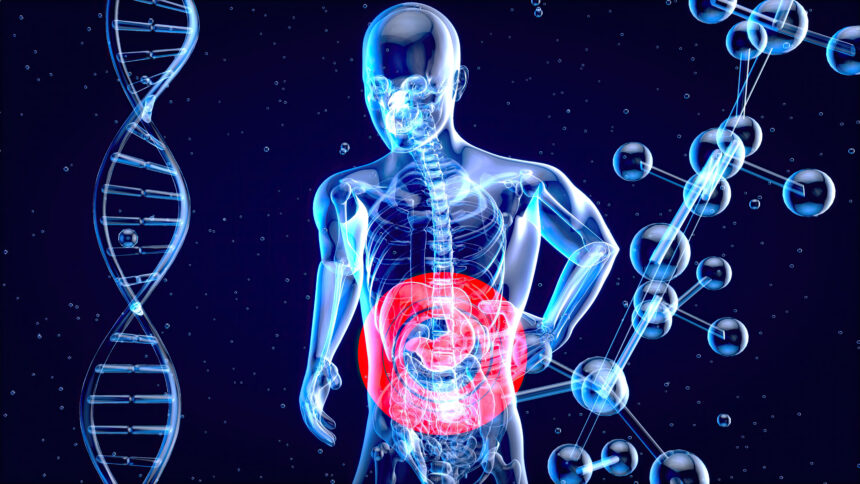Introduction to Gut Health
Your gut health is the foundation of your overall well-being. The digestive system is home to trillions of bacteria that play a crucial role in your body’s functions, from digestion to immunity. A well-balanced gut can improve metabolism, mental health, and even skin health. But how can you ensure your gut is in top shape? This guide will walk you through everything you need to know about maintaining a healthy digestive system naturally.
The Importance of a Healthy Gut
Your gut isn’t just about digestion; it affects almost every aspect of your health. A well-functioning gut microbiome boosts your immunity, enhances your mental well-being, prevents chronic diseases, and improves nutrient absorption. About 70% of your immune system resides in your gut, meaning that a balanced microbiome helps your body fight infections and illnesses. The gut also produces neurotransmitters like serotonin, which regulate mood, making gut health closely linked to mental well-being. Research has shown that poor gut health can increase the risk of obesity, diabetes, and heart disease, as an imbalanced microbiome leads to chronic inflammation. Additionally, proper digestion ensures that your body absorbs essential nutrients from food, supporting overall health and energy levels.
Signs of an Unhealthy Gut
An imbalanced gut can manifest in many ways, and some warning signs are easy to overlook. If you frequently experience digestive issues like bloating, gas, constipation, diarrhea, or acid reflux, your gut bacteria might be out of balance. Skin problems such as acne, eczema, and inflammation may also be linked to poor gut health, as toxins from an unhealthy gut can cause systemic inflammation. Unexplained fatigue is another common sign since an imbalanced gut hinders nutrient absorption, leading to low energy levels. Frequent illnesses indicate a weakened immune system, often due to poor gut health. Additionally, mood swings, anxiety, and even depression can result from gut imbalances, as the gut-brain connection plays a significant role in mental health.
Best Foods for a Healthy Gut
What you eat directly affects your gut bacteria, so incorporating gut-friendly foods into your diet is essential. Probiotic-rich foods such as yogurt, kefir, sauerkraut, kimchi, and miso introduce beneficial bacteria into your gut, promoting a healthy microbiome. Fiber-rich foods like whole grains, legumes, fruits, and vegetables feed good bacteria and improve digestion. Fermented foods, including pickles, kombucha, and tempeh, support gut bacteria and enhance digestive health. Healthy fats from avocados, nuts, and olive oil help reduce gut inflammation and promote overall well-being. Including these foods in your daily diet can help maintain a balanced and thriving gut microbiome.
Worst Foods for Gut Health
Just as some foods support gut health, others can harm it. Processed foods high in preservatives, artificial additives, and unhealthy fats disrupt gut bacteria and contribute to inflammation. Artificial sweeteners, commonly found in diet sodas and sugar-free products, can negatively alter gut bacteria and cause digestive distress. Excessive alcohol and caffeine intake can irritate the gut lining, leading to inflammation and digestive discomfort. Sugary foods, especially refined sugars, feed harmful bacteria and promote imbalances in the gut microbiome. Limiting or avoiding these foods can help protect and restore your gut health.
How Hydration Affects Digestion
Water plays a key role in digestion and overall gut health. Staying hydrated helps break down food, making it easier for your body to absorb nutrients. Proper hydration prevents constipation by softening stools and promoting regular bowel movements. It also aids in flushing out toxins from the digestive system, reducing the risk of bloating and discomfort. Aim for at least 8-10 glasses of water per day to maintain optimal gut health. Herbal teas and water-rich foods like cucumbers and watermelon can also contribute to proper hydration.
The Role of Exercise in Gut Health
Regular physical activity has a positive impact on digestion and gut health. Exercise increases blood flow to the digestive organs, enhancing their function and promoting a healthy gut environment. It also helps reduce stress, which is a major factor in gut imbalances and digestive issues. Activities like walking, yoga, and stretching can prevent constipation and bloating by stimulating intestinal movement. Even moderate exercise for 30 minutes a day can make a significant difference in your gut health and overall well-being.
Managing Stress for a Healthy Gut
Chronic stress disrupts gut bacteria, leading to inflammation and digestive issues. The gut and brain are closely connected, meaning that high stress levels can negatively impact digestion. Practicing meditation and deep breathing can help calm the nervous system and support a healthier gut environment. Keeping a journal or practicing gratitude can also reduce stress by shifting focus to positive aspects of life. Spending time outdoors and engaging in relaxing activities like reading or listening to music can further support gut health. Reducing screen time before bed can improve sleep quality, which in turn benefits digestion and overall gut function.
The Link Between Sleep and Digestion
A poor sleep routine can negatively affect gut health in multiple ways. Lack of sleep increases inflammation in the body, disrupting the balance of gut bacteria. It also affects hunger hormones, leading to unhealthy eating habits that can further harm the gut. Sluggish digestion is another consequence of sleep deprivation, resulting in bloating, constipation, and discomfort. Prioritizing 7-9 hours of quality sleep each night can improve gut function, metabolism, and overall well-being. Establishing a nighttime routine, avoiding screens before bed, and maintaining a consistent sleep schedule can help optimize digestion and gut health.
Natural Remedies for Better Digestion
If you struggle with digestion, natural remedies can offer relief and improve gut function. Herbal teas like ginger, peppermint, and chamomile are known to aid digestion and soothe the stomach. Drinking a small amount of apple cider vinegar before meals can help break down food and improve digestion. Bone broth is another excellent natural remedy, as it supports the gut lining and reduces inflammation. Incorporating these remedies into your daily routine can promote a healthier digestive system and overall well-being.
Supplements for Gut Health
While food should be the primary source of gut-friendly nutrients, certain supplements can support digestion. Probiotics help maintain a healthy balance of gut bacteria and improve digestion. Prebiotics, found in foods like garlic, onions, and bananas, serve as food for good bacteria, promoting their growth. Digestive enzymes can assist in breaking down food, improving nutrient absorption, and reducing bloating. Before adding supplements to your routine, it’s best to consult a healthcare professional to determine what suits your specific needs.
The Connection Between Gut and Mental Health
Your gut is often referred to as your “second brain” because it communicates with your central nervous system. Poor gut health can contribute to anxiety, depression, brain fog, and mood swings. The gut produces neurotransmitters like serotonin and dopamine, which regulate emotions and mental clarity. Keeping your gut balanced through a healthy diet, hydration, and stress management can significantly improve mental well-being and emotional stability.
Common Myths About Gut Health
There are many misconceptions about gut health that can lead to confusion. One common myth is that “only yogurt helps digestion.” While yogurt is a great source of probiotics, other probiotic-rich foods like kimchi, sauerkraut, and miso are equally beneficial. Another misconception is that “gut health only affects digestion,” when in reality, it impacts mental health, skin, and immunity. Many people also believe that “detox teas cleanse the gut,” but most detox teas contain laxatives that can do more harm than good. Understanding these myths can help you make informed choices about your gut health.
Daily Habits to Improve Digestion
Small lifestyle changes can have a significant impact on gut health. Chewing your food thoroughly aids digestion by breaking it down before it reaches the stomach. Eating meals at regular times helps regulate digestion and prevents discomfort. Avoiding late-night eating allows the gut to rest and function properly. Staying active supports digestion by promoting healthy gut movement. Adopting these simple habits can lead to long-term improvements in your gut health.
Conclusion
A healthy gut is key to overall wellness. By eating the right foods, staying hydrated, managing stress, and getting enough sleep, you can naturally improve digestion and feel your best. Small changes in daily habits can have a long-term impact on your gut health.
FAQs
1. How long does it take to improve gut health?
It depends on your diet and lifestyle, but noticeable improvements can happen within a few weeks.
2. Can probiotics cure digestive issues?
Probiotics help, but they should be combined with a balanced diet for the best results.
3. Are bloating and gas signs of poor gut health?
Occasional bloating is normal, but persistent bloating may indicate an imbalance.
4. What is the best way to reset your gut?
Eliminate processed foods, eat fiber-rich meals, and stay hydrated.
5. Does fasting improve gut health?
Intermittent fasting may support digestion by giving the gut time to rest.






